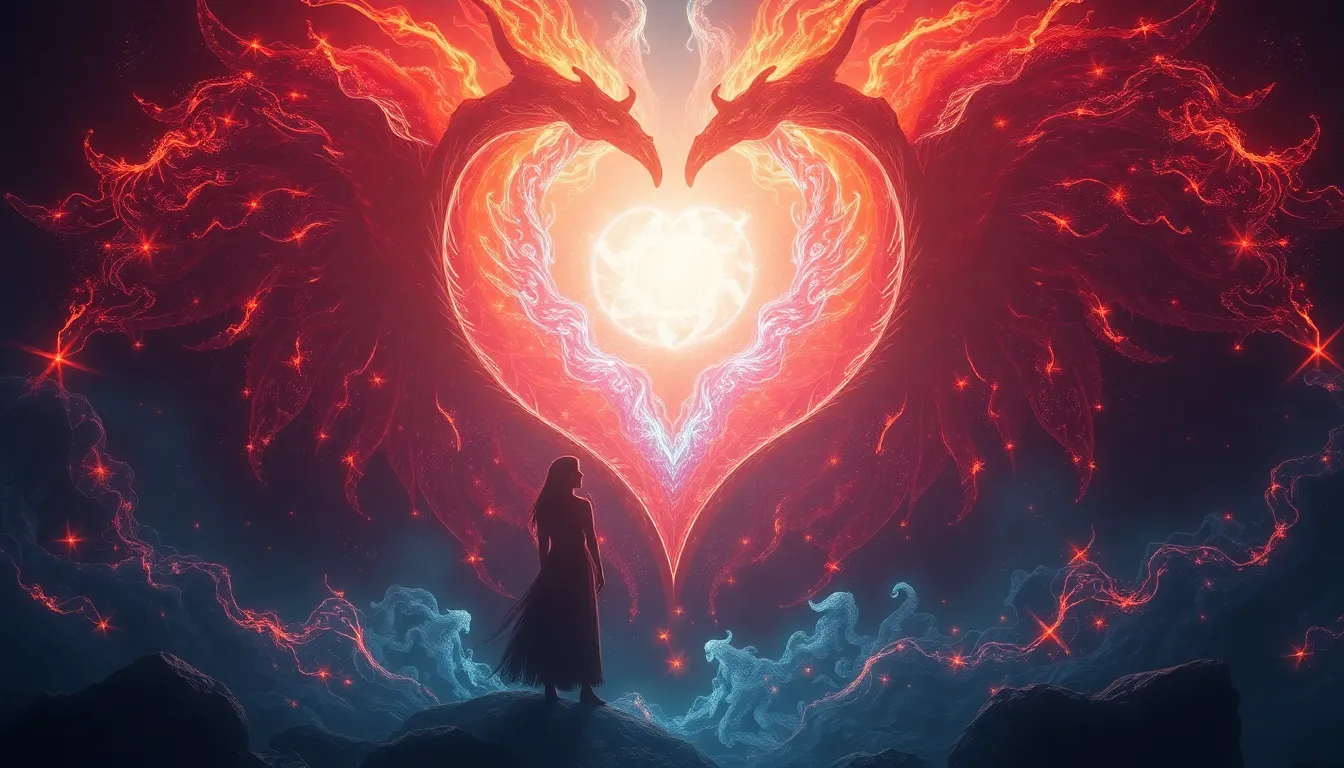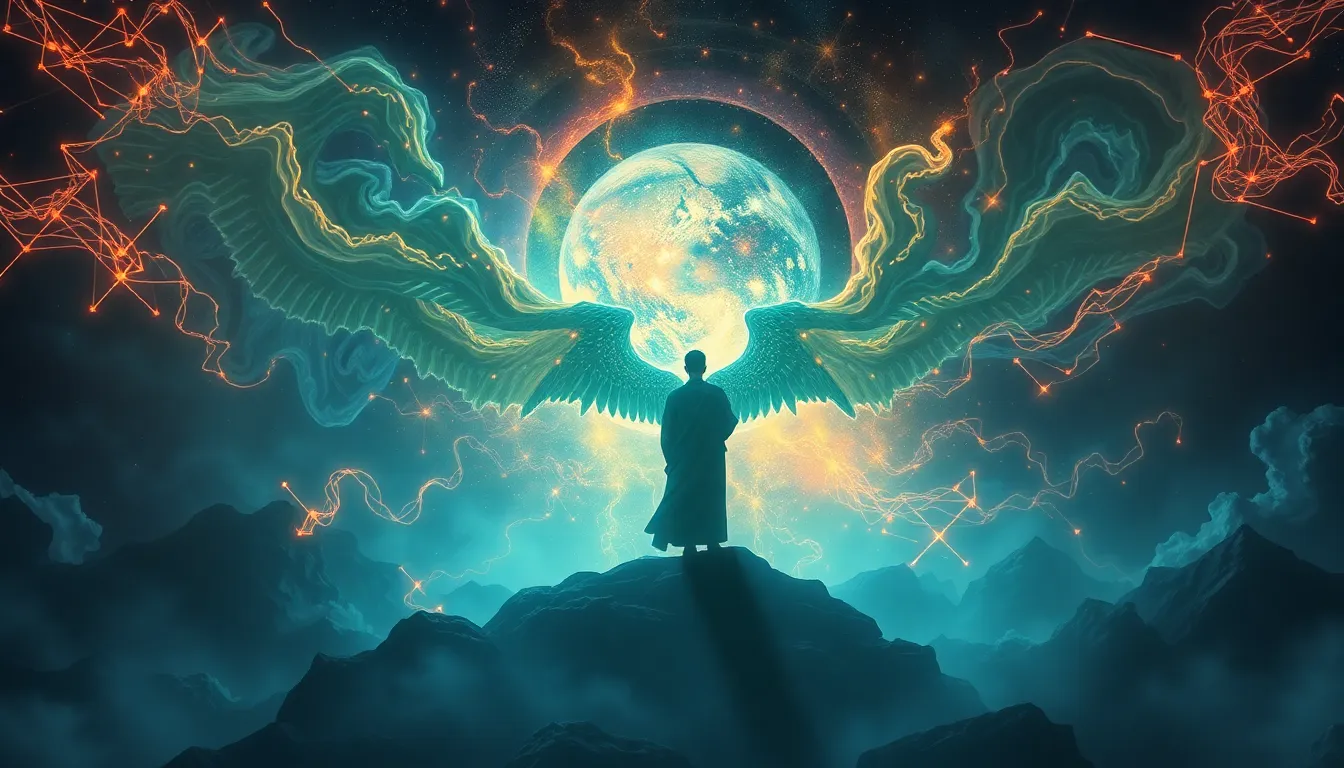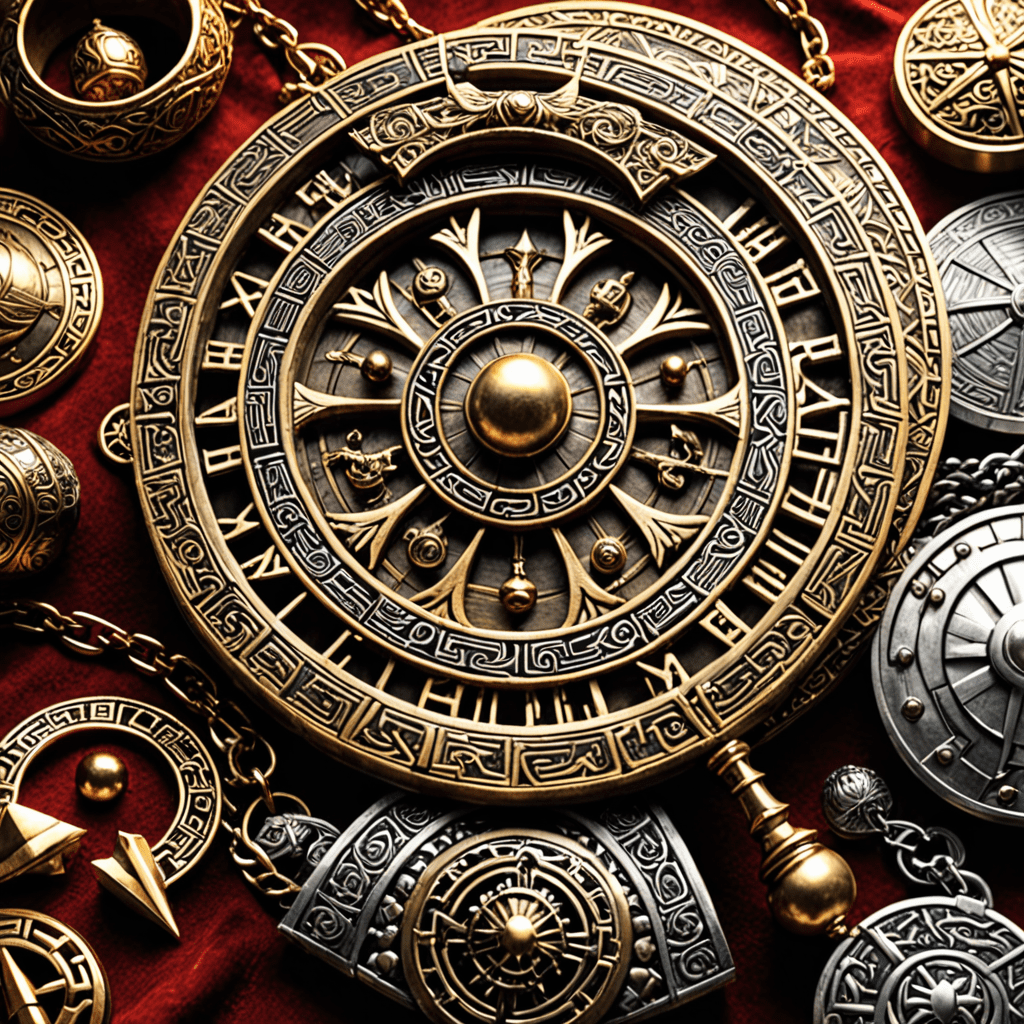The Heart’s Awakening: Transformative Love in Mythical Narratives
I. Introduction
Transformative love, in the context of mythology, refers to a profound and often life-altering bond that transcends ordinary affection. This type of love frequently serves as a catalyst for significant change in both individuals and their environments. Throughout various cultures and their mythologies, love emerges as a central theme that not only drives narratives forward but also reflects the essence of human experience.
The importance of love as a theme in mythical narratives cannot be overstated; it is a universal force that binds characters, shapes destinies, and often leads to personal metamorphosis. This article will explore the concept of transformative love across diverse cultures and stories, examining its characteristics, manifestations, and the lessons learned from these timeless tales.
II. The Concept of Transformative Love
Transformative love is characterized by its ability to inspire change, instigate sacrifice, and promote personal growth. Unlike conventional love narratives, which may focus primarily on romance or desire, transformative love often encompasses a wider range of emotions and experiences, including struggle, redemption, and enlightenment.
- Characteristics of Transformative Love:
- Deep emotional connection
- Personal sacrifice
- Growth and evolution of the self
- Impact on the broader community or environment
The role of sacrifice is particularly significant in transformative love narratives, as characters often confront challenges that test their devotion and resilience. This journey of self-discovery and the resulting personal growth contribute to the richness and depth of these mythical tales.
III. Love as a Catalyst for Change in Greek Mythology
Greek mythology is replete with stories that illustrate the transformative power of love. One of the most poignant examples is the tale of Orpheus and Eurydice. Orpheus, a gifted musician, descends into the Underworld to retrieve his beloved Eurydice after her untimely death. His love and determination lead him to confront Hades, the god of the Underworld, showcasing the lengths to which love can drive an individual.
Similarly, the story of Pygmalion and Galatea explores the theme of love’s transformative power. Pygmalion, a sculptor, falls in love with a statue he created. His love is so profound that the goddess Aphrodite brings the statue to life, demonstrating that love can transcend the boundaries of reality and existence.
These narratives teach us that love can inspire individuals to overcome obstacles, challenge fate, and embark on journeys of self-discovery.
IV. Love and Transformation in Norse Mythology
In Norse mythology, love also plays a pivotal role in shaping destinies and influencing the fates of gods and mortals alike. The bond between Freyja and her beloved reflects the strength and complexity of love in the face of adversity. Freyja, the goddess of love and war, embodies the idea that love can be both a source of power and vulnerability.
The story of Baldr’s death and resurrection further highlights love’s influence in Norse tales. Baldr, beloved by all, is killed due to a tragic misunderstanding. His death plunges the world into darkness, but the love of his mother, Frigg, leads to his eventual resurrection, showcasing how love can alter the course of fate.
V. The Impact of Love in Eastern Mythologies
Eastern mythologies also present transformative love as a powerful force. In the tale of Kuan Yin, the goddess of compassion, love is depicted as a healing power that transcends suffering. Kuan Yin’s dedication to alleviating the pain of others illustrates the selfless aspect of transformative love.
In Indian mythology, the epic tales of the Ramayana and the Mahabharata explore love’s multifaceted nature. The love between Rama and Sita represents devotion and fidelity, while the love depicted in the Mahabharata illustrates the complexities of familial bonds and sacrifice.
Chinese legends, such as the story of the Butterfly Lovers, further emphasize the theme of love as a transformative force. This tragic love story reveals how love can defy societal norms and expectations, leading to profound change and legacy.
VI. Love in African Mythical Narratives
African mythology also places significant emphasis on love, particularly in creation stories. The concept of love in these narratives often revolves around the connection between ancestors and their descendants, showcasing the importance of ancestral love in shaping cultural identity.
A notable case study is the love story of Shaka Zulu and Nandi. Their relationship reflects themes of loyalty, honor, and the transformative power of love in uniting people and influencing leadership.
VII. The Role of Love in Native American Mythology
In Native American mythology, love is deeply intertwined with nature and spirituality. Many tribes emphasize the interconnectedness of love, the earth, and the cosmos, illustrating how love serves as a unifying force.
Love stories from various tribes often embody transformation and healing, highlighting the importance of love in overcoming adversity and fostering community. For example, the story of the White Buffalo Woman teaches lessons about compassion and the sacredness of love.
VIII. The Psychological Perspective on Transformative Love
Analyzing mythical narratives offers insights into human psychology, revealing how these stories reflect our innermost desires and fears. Transformative love, as depicted in these tales, serves as a mirror for our own experiences, illustrating the potential for emotional and psychological growth through love.
Storytelling, particularly through mythical narratives, has a profound impact on our emotional well-being. These tales encourage us to explore our own relationships and the transformative potential of love, ultimately guiding us on our personal journeys.
IX. The Influence of Transformative Love on Modern Literature and Media
The themes of transformative love found in mythical narratives continue to shape contemporary literature and media. Modern love stories often draw inspiration from these ancient tales, reflecting the enduring nature of love as a transformative force.
- Examples of Modern Adaptations:
- Film adaptations of classical myths
- Literature that reinterprets mythological themes
- Television shows that explore love’s transformative power
These modern adaptations not only provide entertainment but also reinforce the cultural significance of love as a transformative element in human experience.
X. Conclusion
In conclusion, the narratives of transformative love across various cultures underscore its profound impact on individuals and societies. Whether through the trials faced by Orpheus, the devotion of Rama and Sita, or the compassion of Kuan Yin, love emerges as a powerful catalyst for change. These stories remind us of the enduring nature of love and its ability to inspire growth, resilience, and transformation in the face of life’s challenges.




